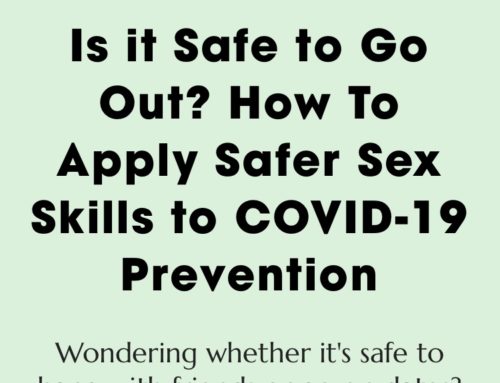Hey Yana,
Over Thanksgiving I spent some time with my awesome 18-year-old niece. I’m in need of your wisdom about a situation I’m trying to wrap my 30-year-old, feminist, protective brain around.
My niece lives in a small town, far from her friends, and has been dealing with some depression. She told me that she’s been driving to meet up and have sex with dudes from Tinder. There have been at least two. I think they’re in their 20s, maybe older. She’s been kind of reticent about details, so I’m thinking there might be some more that would make me more concerned.
When she first told me, I was like “Cool! Sex-positive! Get it girl! Always tell your friends where you’ll be! Condomscondomscondoms! Get tested! Call me any time!” But the more I think about it, the more concerned I am about her emotional health, and the way that she might be using sex less-than-safely.
I’m certain that she hasn’t had pleasure-positive or consent-focused sex-ed and I worry that all the terrible messages about sex that accompany female socialization are setting up this amazing young woman to get hurt.
Are there ways I can encourage her to take care of herself without shaming her?
— Sex-Posi Auntie
Dear Sex-Posi Auntie,
Use your cool, younger-aunt status to your advantage and find a way to talk to your niece about the difference between sex for sex’s sake and sex that feels good, affirming, and consensual. This conversation could be sparked by a sex scene in a movie, a lyric in a song, or you could get real intentional and hold a little viewing of my TEDx talk, which talks about just this — how young people learn about sex in a way that dangerously divorces it from sexual pleasure and consent.
The sex-positivity movement has done wonders in the ways it’s prioritized pleasure over disease, choice over shame, and health over stigma. However, sex-positivity can be wrongly conflated with “all sex is good sex, and the more sex, the better!” “Sex positive” doesn’t mean that all sexual experiences are inherently positive or that we should ignore the things that can be negative about sex.
Rather than throw a sex-posi blanket over your niece’s experiences, lead her through an exploration of the nuances of healthy sex that honors her sexual agency. The World Health Organization’s great definition of “sexual health” prioritizes pleasure and consent:
“A state of physical, emotional, mental and social well-being related to sexuality; it is not merely the absence of disease, dysfunction, or infirmity. Sexual health requires a positive and respectful approach to sexuality and sexual relationships, as well as the possibility of having pleasurable and safe sexual experiences, free of coercion, discrimination. and violence. For sexual health to be maintained, the sexual rights of all persons must be respected, protected, and fulfilled.”
Examine both sides of the sexual coin with your niece — both what feels rewarding, safe, and empowering and what feels scary, unhealthy, or unsafe…continue reading…


